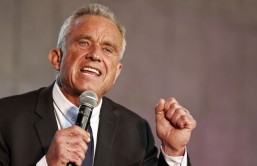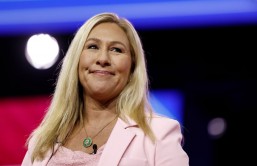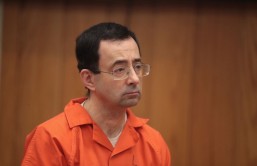The Winnipeg Jets wound up prioritizing defenseman Dustin Byfuglien over captain Andrew Ladd this season in large part because Ladd apparently turned up his nose at a six-year, $36 million contract sometime within the past couple of years. As a result, Byfuglien put pen to paper on a five-year, $38 million deal earlier this month, while Ladd's name continues to pop up in trade talks. And while there's no guarantee that Ladd will be dealt, the tone of recent reports involving Winnipeg has seemingly gone from "possibility" to "eventuality."
Dealing Ladd won't just affect the Jets now though - it will have far-reaching consequences for the makeup of GM Kevin Cheveldayoff's teams for years after. And it may help the Jets get over their fears involving budding blueliner Jacob Trouba, a player TSN's Darren Dreger believes the Jets and Cheveldayoff are "terrified" of.
"I just think that the Winnipeg Jets are still a little unsure as to what they have in Jacob Trouba," Dreger said Tuesday, while appearing on Vancouver's TSN 1040, per Today's Slap Shot. "I think that they think they've got a real good young defenseman here. I think that they're terrified of what his contract is going to have to look like (laughs) in the future.
"Look, you can always bridge and go through all of that nonsense, but a six-year term at what - 6.5, 6.75 - I mean, that's a lot of money invested in a player that you're still trying to get a handle on."
Dreger was responding to a direct query regarding a Trouba-for-Travis Hamonic trade scenario with the New York Islanders. While he did allow that it was "in the ballpark," it also sounds like he thinks any deal like that - Hamonic asked the Isles to trade him to a team in Western Canada so that he could be closer to family - will come to fruition in the offseason.
Which brings us to Trouba. Still just 21, Trouba is only scratching the surface of his potential as an NHL defenseman. That being said, he's already made great strides through parts of three professional seasons. In just 188 NHL games, he's got 21 goals and 65 points. He's already a top-four defenseman and is almost assured to develop into a top-pairing guy (though nothing is assured for any NHL player, of course).
He's big, he's agile and he's got the smarts and skating ability to become one of the league's best two-way defenseman.
But he's not there yet. And with restricted free agency looming next year, the Jets and Cheveldayoff are suddenly faced with the unfortunate prospect of trying to pay a player with an incredibly high ceiling who, though he's shown great promise, has not yet come close to touching that level of play. As Dreger notes, a bridge deal would be the likeliest outcome, but that doesn't solve the Jets' problem - it just puts it off at the same time as it commits a good chunk of the salary cap to a player with a promising, but uncertain future.
In the end, a Trouba trade won't be easy to pull off and if it does come, it's unlikely to be enacted ahead of the deadline later this month. But eventually he'll get paid (and handsomely) by someone, whether that's Cheveldayoff, Garth Snow or any of the league's other personnel men.








